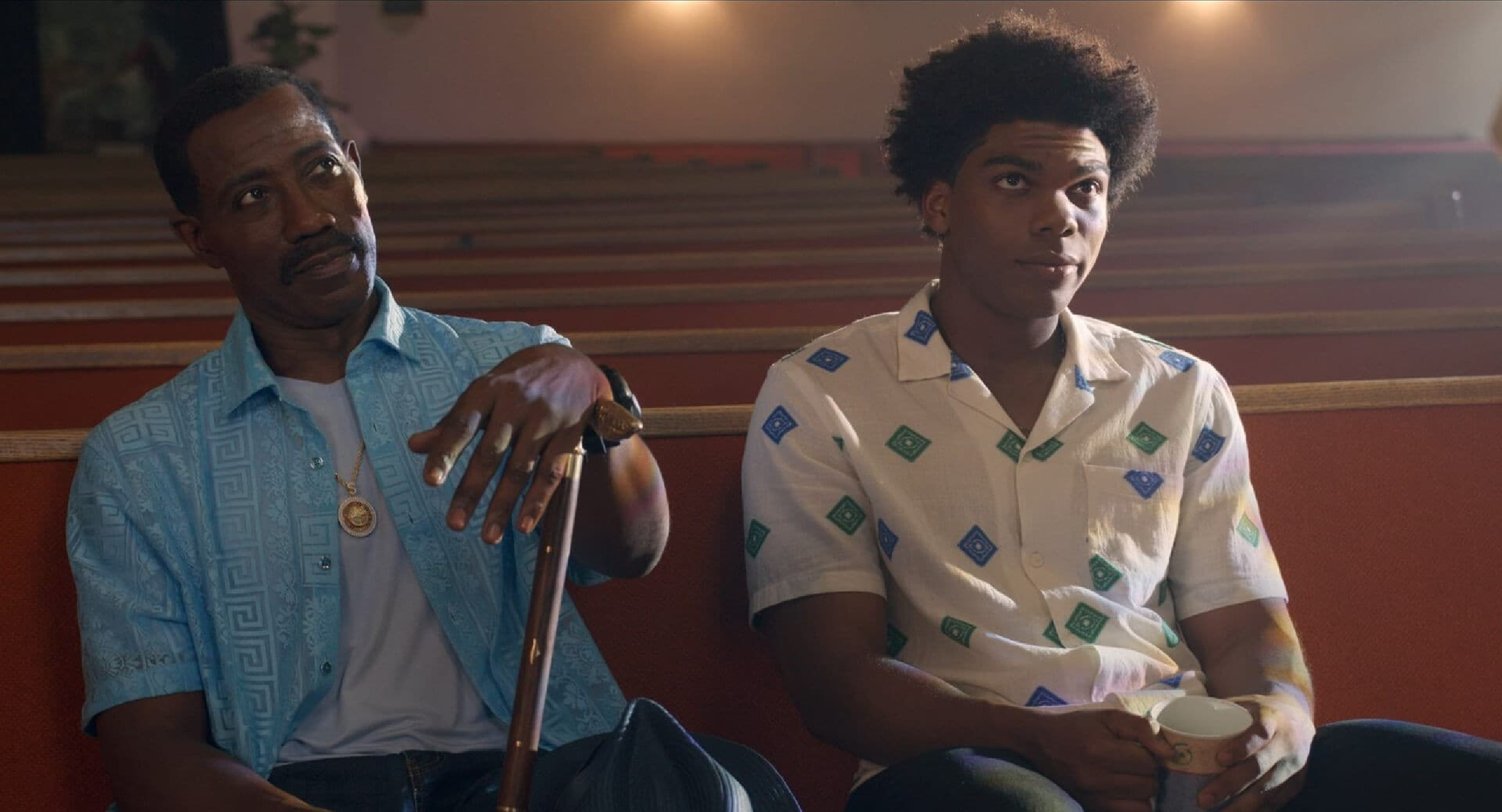Back on the Strip – Film Review
Published August 30, 2023

Back on the Strip by Chris Spencer begins with a premise that could have led to an original investigation of aspiration, identity, and self-discovery. Unfortunately, the film doesn’t live up to its potential, which leads to a disjointed and uninspired story that has a hard time getting going. One would anticipate a good time at the movies with a cast that includes well-known actors like Wesley Snipes, Tiffany Haddish, and JB Smoove, but the movie disappoints on several levels.
Merlin (Spence Moore II), a young aspiring magician who moves to Las Vegas with aspirations of becoming successful, is the main character of the story. The concept is intriguing enough, but the execution is far from perfect. When Merlin becomes involved with “The Chocolate Chips,” a group of black male strippers, the movie takes an unexpected turn. The movie’s decline begins with this sudden change in focus. Any in-depth examination of Merlin’s personality or his quest for fame is diminished by the forced and awkward way in which the attempt to combine the worlds of magic and male stripping is presented.
Spence Moore II’s portrayal of Merlin suffers from a lack of character growth and a script that skips over his struggles and motivations. The emotional depth necessary for the audience to empathize with Merlin’s transformation from a budding magician to a reluctance stripper is absent. Although not entirely subpar, Moore’s performance is hindered by the limitations of the material he is working with. The character frequently makes illogical choices, and his transformation comes off as hurried and unrealistic.
Even though Wesley Snipes, who plays Luther “Mr. Big,” exudes charisma on screen, the weakly written character is beyond repair. Luther is the stereotypically slick-talking, good-hearted owner of a strip club, an old-fashioned and overused trope. As one of the few positives in an otherwise dull film, Snipes deserved better material to get his teeth into.
Verna, played by Tiffany Haddish, is reduced to the role of a one-dimensional love interest, and her comedic skills are wasted on a personality who lacks agency and depth. Verna and Merlin’s chemistry seems forced, and their interactions don’t add much to the story or provide insightful information about their characters.
JB Smoove plays Amos in the film, which aims to add humor, but his comedic moments frequently fall flat due to the absence of a consistent tone. The movie struggles to strike the right balance between comedy and drama, which causes abrupt changes that ruin the overall rhythm of the film. Although spirited, Smoove’s performance can’t undo the screenplay’s poorly executed comedic elements.
Although Gary Owen‘s Xander adds yet another layer of eccentricity to the mix, his character’s motivation is never made clear in the film. Although it is clear that Owen has a gift for comedy, his scenes don’t feel like they are part of the main action and don’t advance the plot in any significant way.
The film’s pacing is erratic, with some scenes going on for too long while other crucial parts feel hurried. It is challenging for the audience to connect with the characters or become invested in their journeys because the narrative lacks a strong organizational structure. It is a creative error to attempt to contrast the world of magic with male stripping because it only serves to further muddy the waters.
Furthermore, the lack of nuance and depth in the investigation of these themes renders the film’s attempts at social commentary regarding black identity ineffective. These possible directions for in-depth investigation are glossed over in favor of awkward humor and clumsy plot twists.
Chris Spencer’s vision for the direction of the film has difficulty being successfully translated to the screen. The film lacks a clear visual aesthetic, and the director’s decisions frequently come off as uninspired. Scenes that might have been visually arresting are shot clumsily, which lessens their impact.
Back on the Strip is an unsatisfactory project that underutilizes its intriguing premise and skilled cast. Any chance for emotional resonance or thought-provoking commentary is thwarted by the underdeveloped characters, jumbled narrative, and inconsistent tone. The cast members give it their all, but the script and direction fall flat and let the material down, despite the cast members’ best efforts. This movie is a missed opportunity that ultimately dissatisfies both its audience and its characters.
